The Mentality Of Bouncing Back From A Bad Race
The Mentality Of Bouncing Back From A Bad Race
Dr. Brett McCabe of "The MindSide" in Birmingham, Alabama, talks about the mentality of bouncing back from a bad swimming race.
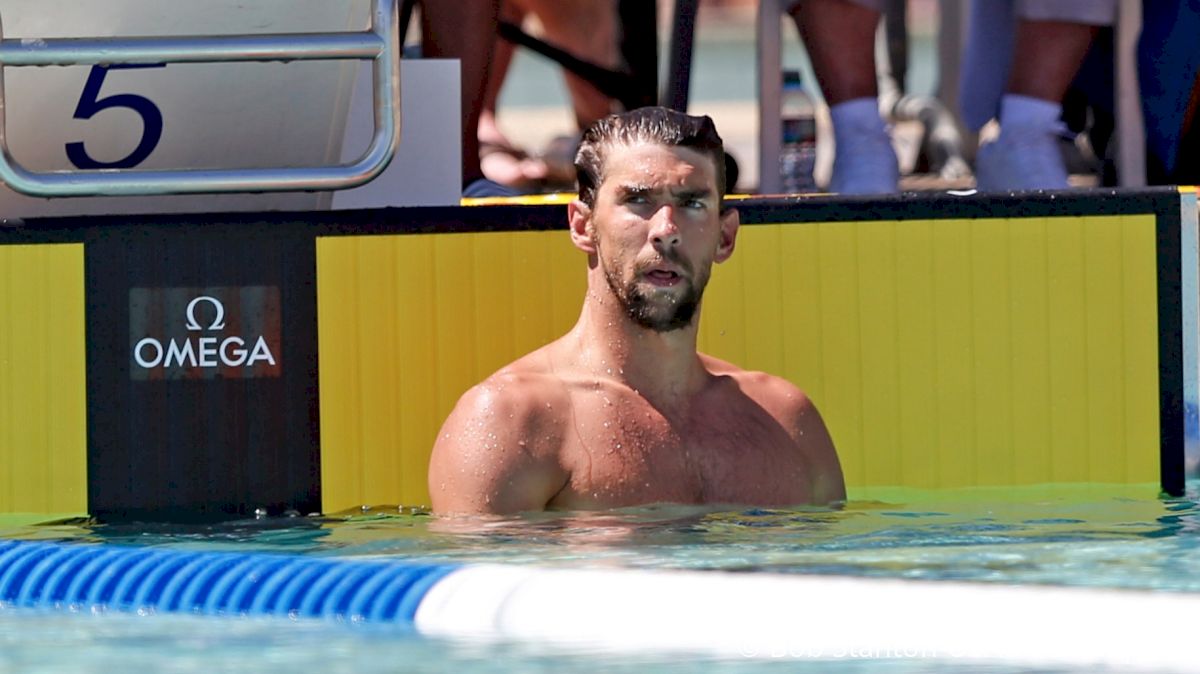
"Why do we fall, sir? So we can learn to pick ourselves up." -- Alfred Pennyworth, "Batman Begins"
Swimmers, much like Bruce Wayne, are not unaccustomed to failure. But as Alfred famously points out, it is how we respond to failure, rather than the failure itself, that is important. Bouncing back from a disappointing race, meet, or season is an integral part of the sport and is paramount for improving when the drops don't come as easy as they once did.
FloSwimming had the pleasure of interviewing Dr. Brett McCabe, a licensed clinical psychologist and founder of "The MindSide" -- a sport and performance psychology practice that trains professional, collegiate, and youth athletes to maximize their competitive mindset. McCabe has worked with athletes from the PGA/LPGA, NFL, NBA, MMA, and the University of Alabama and provided us some insight on bouncing back from a bad performance.
Dr. Brett McCabe: The primary mistake that athletes make is they make it personal. By attaching an outcome to a personal deficit or "failure," they are actually suggesting that they are deficient in an area. No doubt that bad performances can be a result of bad decisions, incorrect strategies, failed preparation, etc., but oftentimes, the performance is not one factor or another -- it is simply a bad outcome. The more you can divorce the performance from personal judgments the better and more resilient the athlete will become.
For my athletes, we establish that there are five ways to evaluate a poor performance. These are potential explanations and not absolutes.
Poor Preparation -- Your preparation and strategy did not get you in the position to succeed. It may have been due to illness, poor programming, or focusing on the wrong aspects, but the goal is to have elite preparation that readies you for competition.
Poor Strategy -- The race strategy was incorrect. Too often, the athlete abandons their strengths and believes that they must do something different to succeed. That is often the case when competing against someone that they perceive to be a better athlete. As a result, they try and alter their strategy but that is not their tested and trusted approach.
Poor Mindset -- They allowed nerves, lack of focus, inability to let go of past race results, etc., to adversely impact performance. The goal for each swimmer is to be 100 percent focused on the race at hand, with a mindset of purpose and desire, not prevention and hope. Training the mindset is difficult, but it is not magical. It is developed through training and daily investments.
Poor Execution -- Sometimes you are prepared, with a great strategy, and mentally focused, and you simply failed to execute. We are not machines, and execution is never a given. It has to be fought for, trained for, and trusted. Sometimes, in swimming, the stroke count gets off, the turns get sloppy, or the start is poor. It happens.
Bad Luck -- There are times when nothing goes your way or a competitor or pool of them simply have their great days. You have to understand that one race does not determine your perception of proficiency unless you allow it.
Very simply, they have a belief that regardless of what is happening. They are willing to fight for it, through it, and with it to get to solve the puzzle. That belief is in their ability to persevere and stick to the challenge and not make it personal. It is a challenge, a puzzle, but not a validation or definition.
---
Sub-par performances at meets are inevitable. They can definitely be minimized, as McCabe told us, but they are still going to happen. The most crucial part of any failure is your response -- how you will change and adapt to achieve your desired outcome in order to return confidently to the starting blocks, to practice, or even to Gotham.
---
Swimmers, much like Bruce Wayne, are not unaccustomed to failure. But as Alfred famously points out, it is how we respond to failure, rather than the failure itself, that is important. Bouncing back from a disappointing race, meet, or season is an integral part of the sport and is paramount for improving when the drops don't come as easy as they once did.
FloSwimming had the pleasure of interviewing Dr. Brett McCabe, a licensed clinical psychologist and founder of "The MindSide" -- a sport and performance psychology practice that trains professional, collegiate, and youth athletes to maximize their competitive mindset. McCabe has worked with athletes from the PGA/LPGA, NFL, NBA, MMA, and the University of Alabama and provided us some insight on bouncing back from a bad performance.
FloSwimming: What are some of the common mistakes athletes make when assessing a bad performance?
Dr. Brett McCabe: The primary mistake that athletes make is they make it personal. By attaching an outcome to a personal deficit or "failure," they are actually suggesting that they are deficient in an area. No doubt that bad performances can be a result of bad decisions, incorrect strategies, failed preparation, etc., but oftentimes, the performance is not one factor or another -- it is simply a bad outcome. The more you can divorce the performance from personal judgments the better and more resilient the athlete will become.
What are some mental strategies athletes can use to bounce back from a disappointing race?
For my athletes, we establish that there are five ways to evaluate a poor performance. These are potential explanations and not absolutes.
Poor Preparation -- Your preparation and strategy did not get you in the position to succeed. It may have been due to illness, poor programming, or focusing on the wrong aspects, but the goal is to have elite preparation that readies you for competition.
Poor Strategy -- The race strategy was incorrect. Too often, the athlete abandons their strengths and believes that they must do something different to succeed. That is often the case when competing against someone that they perceive to be a better athlete. As a result, they try and alter their strategy but that is not their tested and trusted approach.
Poor Mindset -- They allowed nerves, lack of focus, inability to let go of past race results, etc., to adversely impact performance. The goal for each swimmer is to be 100 percent focused on the race at hand, with a mindset of purpose and desire, not prevention and hope. Training the mindset is difficult, but it is not magical. It is developed through training and daily investments.
Poor Execution -- Sometimes you are prepared, with a great strategy, and mentally focused, and you simply failed to execute. We are not machines, and execution is never a given. It has to be fought for, trained for, and trusted. Sometimes, in swimming, the stroke count gets off, the turns get sloppy, or the start is poor. It happens.
Bad Luck -- There are times when nothing goes your way or a competitor or pool of them simply have their great days. You have to understand that one race does not determine your perception of proficiency unless you allow it.
What, mentally, do resilient athletes have in common?
Very simply, they have a belief that regardless of what is happening. They are willing to fight for it, through it, and with it to get to solve the puzzle. That belief is in their ability to persevere and stick to the challenge and not make it personal. It is a challenge, a puzzle, but not a validation or definition.
---
Sub-par performances at meets are inevitable. They can definitely be minimized, as McCabe told us, but they are still going to happen. The most crucial part of any failure is your response -- how you will change and adapt to achieve your desired outcome in order to return confidently to the starting blocks, to practice, or even to Gotham.
---
Do you love swimming? Let us deliver it to your inbox!
Don't miss breaking news, feature stories, event updates, and more. Sign up for the FloSwimming mailing list today.Related Content
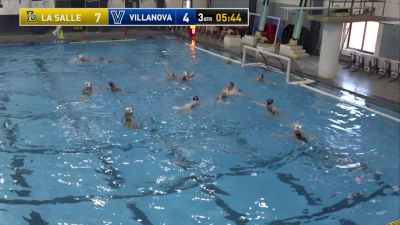 Replay: Le Salle vs Villanova - WWP - 2024 La Salle vs Villanova | Apr 7 @ 3 PM
Replay: Le Salle vs Villanova - WWP - 2024 La Salle vs Villanova | Apr 7 @ 3 PMApr 7, 2024
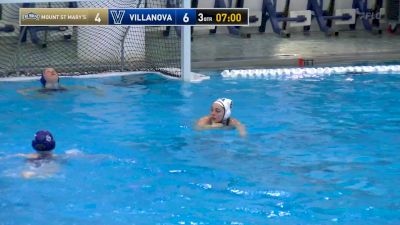 Replay: Mount St. Mary's vs Villanova - WWP - 2024 Mount St. Mary's vs Villanova | Apr 6 @ 7 PM
Replay: Mount St. Mary's vs Villanova - WWP - 2024 Mount St. Mary's vs Villanova | Apr 6 @ 7 PMApr 7, 2024
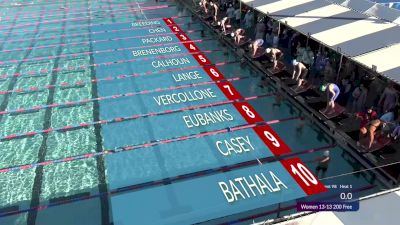 Replay: Finals - 2024 ISCA East Coast Elite Showcase | Apr 6 @ 4 PM
Replay: Finals - 2024 ISCA East Coast Elite Showcase | Apr 6 @ 4 PMApr 7, 2024
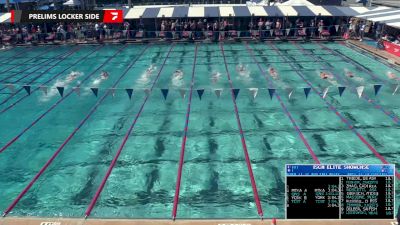 Replay: Prelims Locker Side - 2024 ISCA East Coast Elite Showcase | Apr 6 @ 8 AM
Replay: Prelims Locker Side - 2024 ISCA East Coast Elite Showcase | Apr 6 @ 8 AMApr 6, 2024
 Replay: VMI vs Villanova - WWP - 2024 VMI vs Villanova | Apr 6 @ 11 AM
Replay: VMI vs Villanova - WWP - 2024 VMI vs Villanova | Apr 6 @ 11 AMApr 6, 2024
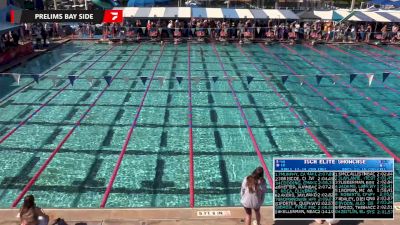 Replay: Prelims Bay Side - 2024 ISCA East Coast Elite Showcase | Apr 6 @ 9 AM
Replay: Prelims Bay Side - 2024 ISCA East Coast Elite Showcase | Apr 6 @ 9 AMApr 6, 2024
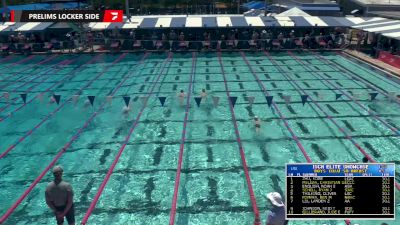 Replay: Prelims Locker Side - 2024 ISCA East Coast Elite Showcase | Apr 5 @ 8 AM
Replay: Prelims Locker Side - 2024 ISCA East Coast Elite Showcase | Apr 5 @ 8 AMApr 6, 2024
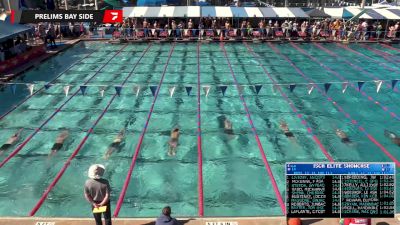 Replay: Prelims Bay Side - 2024 ISCA East Coast Elite Showcase | Apr 5 @ 8 AM
Replay: Prelims Bay Side - 2024 ISCA East Coast Elite Showcase | Apr 5 @ 8 AMApr 5, 2024
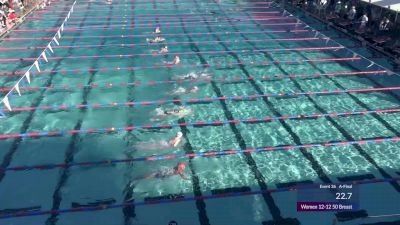 Replay: Finals - 2024 ISCA East Coast Elite Showcase | Apr 4 @ 4 PM
Replay: Finals - 2024 ISCA East Coast Elite Showcase | Apr 4 @ 4 PMApr 5, 2024